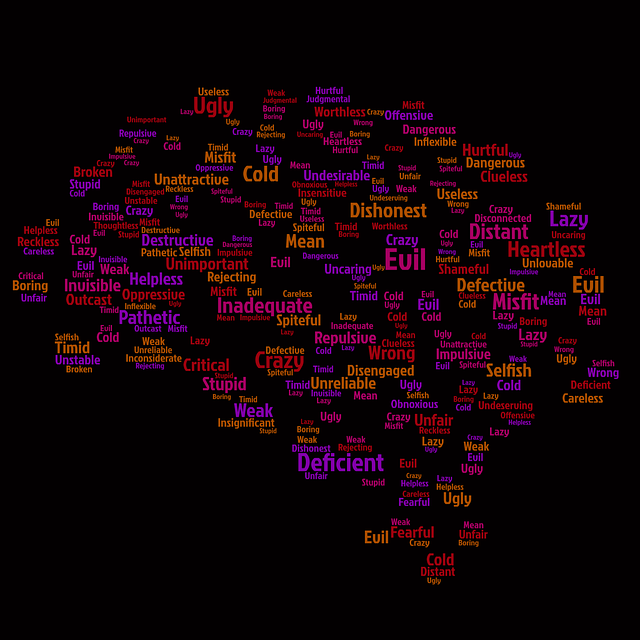If someone you love is struggling with a porn addiction, it can be challenging to know how best to help them. You may feel overwhelmed by the situation and unsure of where to turn for support.
However, understanding your loved one’s recovery journey is crucial in helping them achieve lasting healing. I have seen firsthand the devastating effects that pornography can have on individuals and relationships. It can lead to feelings of shame, guilt, and isolation, making it difficult for those affected to seek help.
But with the right tools and support, your loved one can overcome their addiction and rebuild their life. In this article, we will explore ways you can understand and support your loved one’s recovery journey from porn addiction.
Recognizing The Signs Of Porn Addiction
 I have seen first-hand the devastating effects of porn addiction on individuals and their relationships. It is crucial to recognize the signs of this addiction early on in order to seek professional help as soon as possible.
I have seen first-hand the devastating effects of porn addiction on individuals and their relationships. It is crucial to recognize the signs of this addiction early on in order to seek professional help as soon as possible.
One sign of porn addiction is a persistent preoccupation with sexual thoughts and fantasies that interfere with daily functioning. Individuals struggling with this addiction may also experience intense cravings for pornography and engage in excessive use despite negative consequences such as relationship problems or decreased productivity at work.
Identifying triggers can also be helpful in recognizing a potential porn addiction. Triggers are events or emotions that lead to increased urges to watch pornography. Common triggers include stress, boredom, loneliness, or unresolved emotional issues.
Remember, seeking professional help is critical when dealing with any form of addiction. A licensed therapist or counselor can provide guidance and support through the recovery process. With dedication, patience, and proper treatment, it is possible to overcome porn addiction and regain control over one’s life.
Understanding The Causes Of Porn Addiction
Now that we have a better understanding of the signs and symptoms of porn addiction, let’s explore the possible causes.
It’s important to note that there is no one-size-fits-all explanation for why someone may develop an addiction to pornography. However, by exploring potential triggers and underlying issues, we can gain insight into how best to support our loved ones on their recovery journey.
One common trigger for porn addiction is stress or anxiety. Individuals may turn to pornography as a way to escape these feelings temporarily.
Additionally, early exposure to sexual content at a young age can also lead to problematic behaviors later in life. Childhood trauma, low self-esteem, and social isolation are other factors that may contribute to the development of porn addiction.
While it’s essential to understand some of the possible causes of porn addiction, seeking professional help is often necessary for successful recovery. A mental health professional specializing in sex addiction treatment can provide your loved one with personalized care and guidance throughout their journey towards healing. Encourage your loved one not to be afraid or ashamed of asking for help – doing so takes courage and strength.
Remember, supporting a loved one through any type of addiction can be challenging but know you’re not alone. By being patient, compassionate, and informed about the nature of porn addiction and its potential causes, you’ll be able to offer valuable support along your loved one’s path toward recovery.
Approaches To Supporting Your Loved One
Imagine a scenario where your partner, whom you love deeply, has confided in you about their addiction to pornography. You may feel overwhelmed or unsure of what to do next, but it’s important to remember that supporting them through this journey can make all the difference.
One key approach is setting healthy boundaries for yourself and your loved one. This means being clear about what behaviors are acceptable and unacceptable, while also respecting each other’s needs and limitations. For example, you may need to limit the amount of time spent alone together if triggers arise, or create specific guidelines around technology use in the home.
Another crucial factor is maintaining open communication with your loved one throughout their recovery process. This includes active listening, expressing empathy and understanding, and encouraging honesty even when uncomfortable topics arise. By doing so, you can help build trust and foster a sense of safety for both parties involved.
To further support your loved one on their path towards healing, here are three additional tips:
1. Educate yourself on addiction: Learn as much as you can about porn addiction by reading books or attending workshops led by experts in the field.
2. Practice self-care: Taking care of yourself is just as important as helping someone else through recovery. Make sure you’re getting enough rest, exercise, and emotional support from friends or professionals.
3. Seek professional help: Consider reaching out to a therapist who specializes in sexual addiction treatment for guidance on how best to support your loved one.
Remember that everyone’s recovery journey will look different and take varying amounts of time – be patient with yourself and your partner along the way. With dedication, compassion, and an openness to growth and change, you can navigate this difficult experience together.
Building A Support Network
Recovery from porn addiction can be challenging, but it’s important to remember that no one has to go through this journey alone.
Building a support network is crucial for long-term success in recovery. One way to build a support network is by joining a support group specifically designed for individuals struggling with pornography addiction. These groups provide a safe space for people to share their experiences and challenges while receiving encouragement and accountability.
Another helpful resource when building your support network is finding a therapist who specializes in sex addiction or related issues. A trained professional can help address any underlying issues that may be contributing to the addiction and offer tools and strategies for managing triggers and cravings. Additionally, they can serve as an unbiased source of guidance and support, helping you stay on track with your recovery goals.
When seeking recommendations for therapists, consider reaching out to local treatment centers or organizations focused on sexual health. They may have resources available or be able to refer you to professionals experienced in treating porn addiction.
Remember, building a strong support network takes time, effort, and commitment – but it’s worth it. With the right people in place, you’ll have the motivation and reassurance needed to overcome obstacles along the way.
Encouraging Progress And Celebrating Successes
Now that your loved one has begun their journey towards recovery from porn addiction, it’s important to encourage progress and celebrate successes along the way.
It can be easy for them to become discouraged or overwhelmed, so setting realistic goals is key. Help them identify achievable milestones, such as going a certain amount of time without viewing pornography or attending regular therapy sessions.
It’s also important to address setbacks in a productive and supportive manner. Remind your loved one that relapse is common in addiction recovery and doesn’t mean they’ve failed. Encourage them to reflect on what triggered the setback and work with their therapist to develop strategies for avoiding similar situations in the future.
Finally, take time to acknowledge and celebrate any progress made towards recovery. This could include small victories like reaching a goal or simply making an effort each day to stay committed to not browsing for porn.
Celebrating these successes not only boosts morale but reinforces positive behaviors that will aid in long-term recovery efforts. Remember, this is a journey and every step forward should be celebrated – no matter how small.
How Can I Talk To My Loved One About Their Porn Addiction Without Making Them Feel Judged Or Ashamed?
Approaching a loved one about their porn addiction can be challenging, but there are strategies you can use to make the conversation less intimidating.
The first step is to avoid making them feel judged or ashamed by approaching the topic with empathy and understanding.
Encouraging self-reflection is another important approach strategy; ask open-ended questions that allow your loved one to explore their feelings about their behavior without feeling attacked.
I also recommend setting clear boundaries around what behaviors are acceptable in your relationship while still offering support and guidance throughout the recovery journey.
What Are Some Common Triggers For Relapse In Someone With A Porn Addiction, And How Can I Help My Loved One Avoid Them?
Identifying triggers is crucial in helping individuals with porn addiction avoid relapse.
Common triggers include stress, boredom, and social isolation.
I advise clients to develop healthy coping mechanisms such as exercise, meditation, or engaging in hobbies they enjoy.
It’s important for loved ones to provide support without judgement and encourage their partner to seek professional help if needed.
Recovery is a journey that requires patience and understanding from both parties involved.
Is It Possible For Someone With A Porn Addiction To Recover Without Professional Help?
It’s a common misconception that professional help is always necessary for someone to recover from a porn addiction.
In fact, studies have shown that over 50% of individuals with an addiction are able to overcome it without any formal treatment or therapy.
Recovery methods such as hypnosis, self-help groups, mindfulness practices, and accountability partnerships can be incredibly effective in helping an individual achieve success on their own terms.
And while every recovery journey is unique, there are countless success stories of people who were able to break free from the grip of their addiction by relying on these types of resources and support systems.
How Can I Support My Loved One’s Recovery Without Taking On Too Much Responsibility Or Neglecting My Own Needs?
I often remind my clients of the importance of setting boundaries and practicing self-care techniques.
This is especially crucial when supporting a loved one in their recovery journey. While it’s natural to want to help as much as possible, taking on too much responsibility can lead to burnout and neglecting your own needs.
Setting clear boundaries with your loved one can help them take ownership of their recovery while allowing you time and space for self-care. Some examples of self-care techniques include exercise, mindfulness practices, therapy or counseling sessions, and engaging in hobbies that bring joy and relaxation.
Remember that taking care of yourself is not selfish; it ultimately benefits both you and your loved one in the long run.
What Can I Do If My Loved One Is Resistant To Seeking Help Or Acknowledging Their Addiction?
If your loved one is resistant to seeking help or acknowledging their addiction, there are intervention strategies that can be utilized.
It’s important to approach the situation with empathy and understanding, while also setting boundaries to protect yourself.
Encouraging self reflection through open-ended questions and active listening can help your loved one see the impact of their addiction on themselves and those around them.
You may also want to consider involving a professional counselor or therapist who specializes in addiction recovery for additional support.
Remember, you cannot control your loved one’s actions, but you can offer love and support as they navigate their journey towards healing.
It can be difficult to find the right balance between encouragement and enabling, empathy and detachment.
But with patience, understanding, and a willingness to learn, you can help your loved one overcome their porn addiction.
Remember that addiction is not a moral failing or character flaw; it’s a complex disease that requires professional treatment and ongoing support.
By offering your love and compassion without judgment or shame, you can create a safe space for your loved one to heal.
Together, you can navigate the ups and downs of recovery, celebrating small victories along the way and staying committed to the long-term goal of lasting change.









